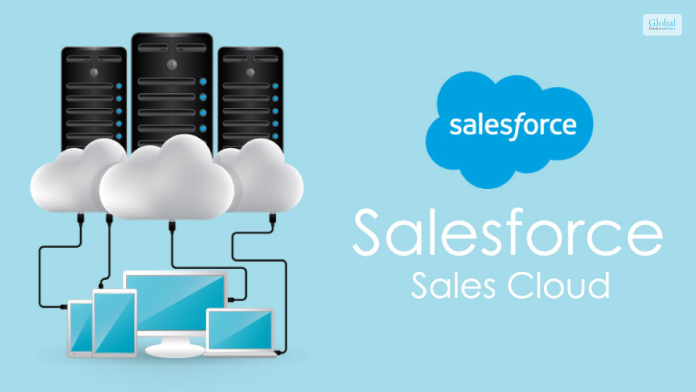The Ultimate Guide to Salesforce Agentforce

Salesforce Agentforce presents a tale that combines exciting prospects with clear signs of deterioration for those who fail to adapt. It introduces a future-like world that grants endless customer requests against increasing demand for instant service, along with massive data volumes threatening the drowning of your business model. Human employees maintain their dedication but operate at maximum capacity, and their energy supply has reached its limit. In modern society, many people live between fighting the ticking clock to meet the rising speed standards of the connected world.
Salesforce Agentforce appears as a digital solution at this moment. Salesforce Agentforce promises to use AI agents that work without pause while performing monotonous tasks, which frees your employees to work at strategic levels. The platform delivers an attractive vision highlighting smooth customer relations, ultrafast service times, and advanced personalized large-scale customer experience delivery. Progress calls to us through its enchanting symphony, which leads us to embrace intelligent automation as a leadership foundation that builds success beyond its status as a privilege.
The enchanting song we are listening to conceals a foreboding note in its notes. Your competitors become more agile because they utilize these exact AI agents to build their operations. These systems detect customer requirements even before those requests are completely clear to human voices. These systems will find better opportunities while streamlining unknown process inefficiencies to deliver custom interactions that downgrade your services’ value. Under these conditions, unwillingness to act leads to gradual movement toward becoming obsolete. As time passes, your customers flow toward AI-powered companies that deliver instant intelligent services that outshine your unanswered data collection and unmet customer service needs. Those who pause in the face of an efficient modern future will experience a lengthy dark perspective emanating from behind them.
The present business environment shows this development as a reality rather than science fiction. Salesforce Agentforce is more than a technology buzzword because it provides a life-saving tool and a method to achieve maximum operational efficiency and enhanced customer devotion. Marginalizing this revolutionary capability, along with its transformative capabilities, will cause you to become a victim of the advancement it creates.
The intelligent automation lights await your presence while you remain stagnant in unrelenting darkness as time bids you farewell. Salesforce Agentforce is currently building its narrative, and your part within it remains to be written. We should analyze this interesting technology to grasp its strength and assess what could happen when we dismiss its invitation.
What is Salesforce Agentforce?
- Agentforce Salesforce is an advanced toolkit of features that developers designed explicitly for the expansive Salesforce information structure.
- The main goal of Agentforce is to enable businesses to construct AI-powered virtual agents alongside strategic deployments and effective control systems over various business operations.
- Agentforce operates differently from standard automation because it uses artificial intelligence to read and combine information from the Salesforce data foundation through deep platform integration.
- The deep connection between AI agents enables them to retrieve and analyze enormous datasets and independently learn while autonomously making smart decisions like human beings do.
- Agentforce leads the industry in implementing the technology defined as the “Third Wave of AI.” The initial phase relied on rule-based systems, yet machines learned pattern recognition techniques during the second development phase.
- The third wave of AI development, represented through Agentforce, intends to build systems that acquire contextual understanding while using logical reasoning to solve problems independently.
- The technological advancement represents progress in artificial intelligence development by producing virtual teammates who boost human teamwork throughout different aspects of business operations.
- The unified data model from Salesforce gives Agentforce AI agents complete visibility into customer relationships, business procedures, and core data points, which results in enhanced performance of their coordinated actions.
Key Features and Benefits

Autonomous Operation
- Agentforce Salesforce is an advanced toolkit of features that developers designed explicitly for the expansive Salesforce information structure.
- The main goal of Agentforce is to enable businesses to construct AI-powered virtual agents alongside strategic deployments and effective control systems over various business operations.
- Agentforce operates differently from standard automation because it uses artificial intelligence to read and combine information from the Salesforce data foundation through deep platform integration.
- Through deep integration, AI agents can simultaneously obtain significant information access to programmers’ vast databases and dynamically learn through intelligent adaptation and execute autonomous tasks that replicate human-style decision processing.
Customization through Agent Builder
- Agentforce leads the industry in implementing the technology defined as the “Third Wave of AI.”
- The first wave adopted rule-based systems, although pattern recognition capabilities came during the second wave.
- Agentforce stands as an exemplar of the third AI wave because it works toward establishing AI systems with intelligent context capabilities to reason according to logic and autonomously solve problems.
- The technological advancement represents progress in artificial intelligence development by producing virtual teammates who boost human teamwork throughout different aspects of business operations.
- The unified data model from Salesforce gives Agentforce AI agents complete visibility into customer relationships, business procedures, and core data points, which results in enhanced performance of their coordinated actions.
Seamless Integration within the Salesforce Ecosystem
- The main advantage of Agentforce stems from its natural integration capability with Salesforce’s entire system, including the core platform and diverse range of tools and services.
- The platform does deep innovation between components to deliver complete data movement alongside unified workplace activities and identical user interfaces.
- Agentforce agents can work effortlessly with Salesforce Sales Cloud, Service Cloud, Marketing Cloud, and all other modules to use data and features currently available in the platform.
- The integrated capabilities with Flow for automation, MuleSoft for system integration, and Apex for customized applications enable optimal flexibility and limitless expandability of Agentforce.
- The tight bind between the AI agents and the Salesforce environment eliminates data segmentation while enabling digital representatives to work across complete organizational business systems.
Advanced Natural Language Processing (NLP)
- Agentforce achieves effective user interaction through its exceptional Natural Language Processing (NLP) capabilities that stay at the core of its understanding.
- Advanced algorithms provided to AI agents allow them to process human language with a sense of purpose, emotional tone, and context.
- Agents deliver appropriate responses by accurately processing user inquiries regardless of the wording individuals use to express themselves.
- Natural Language Processing technologies in the system go past basic keyword matching to enable natural and dialogic user-agent exchanges, which leads to better user satisfaction rates and enhanced communication efficiency.
Real-time Data Access via Salesforce Data Cloud
- Data Cloud through Salesforce provides real-time access to specialized information stored within the platform.
- Agentforce uses Salesforce Data Cloud (formerly Customer 360) to provide AI agents with live access to consolidated customer data and essential business information.
- The agents can deliver more precise responses while providing individualized solutions because they access current data through Salesforce Data Cloud.
- The sales agent gains instant access to consumer history and behavior information because Agentforce connects to Salesforce Data Cloud, which provides live updates on customer interactions and personal preferences.
Significant Cost Reduction and Enhanced Efficiency
- Agentforce creates massive cost reductions and operating efficiency boosts since it eliminates monotonous tasks requiring human intervention.
- The AI agents handle many simultaneous assignments throughout daily changing hours because they surpass the human processing constraints.
- The elimination of repetitive operations allows human staff to dedicate themselves to critical thinking tasks accompanied by emotional intelligence while handling complex strategic work.
- The same customer service operation benefits AI agents by processing multiple simple inquiries at once to free up human agents who resolve complex cases.
Elevated Customer Experience
- Delivering outstanding customer experiences remains crucial in our present customer-centered market.
- The platform Agentforce helps organizations achieve their goal of providing accelerated service along with uniform support and individualized customer interactions.
- Agentforce provides continuous availability through AI agents to help customers get help at all hours of the day.
- The real-time data access of these agents delivers personalized help in advance, which leads customers to better satisfaction, loyalty, and increased advocacy.
Driving Revenue Generation Across Departments
- Agentforce, beyond its customer service benefits, enables businesses to generate revenue across departments.
- The sales department obtains support from AI agents, which includes lead qualification, a product-based question-answering app, appointment scheduling, and preliminary revenue processing support.
- The Agentforce platform features tools for creating campaigns, personalizing customer outreach, segmenting audiences, and developing marketing material that leads to better sales and marketing results.
The Innovative Atlas Reasoning Engine
- Agentforce differentiates itself through the cutting-edge Atlas Reasoning Engine, its main technological advancement.
- The advanced engine operates superior to basic pattern matching because it mimics human mental processes while building strategic plans.
- The system processes complicated user demands while decoding user purposes before creating complete strategies to handle those inquiries efficiently.
- The Atlas Reasoning Engine enhances Agentforce agents to tackle demanding responsibilities and complex decision-making capabilities for providing intelligent, planned solutions rather than standard responses.
Robust Security with the Einstein Trust Layer
- The Einstein Trust Layer provides robust security for Agentforce since it understands the essential need to protect data privacy and security.
- Agentforce ensures secure and compliant data processing through its strong security structure, which protects all activities conducted by its agents.
- The Einstein Trust Layer serves businesses and customers by using sophisticated anonymization methods together with a sensitive information zero-data retention standard that provides maximum data security.
Use Cases and Applications
Agentforce from Salesforce provides flexible use across multiple industries and various business operations.

Revolutionizing Customer Service
- Agentforce impacts customer service through its first-support capabilities. It addresses numerous standard inquiries, delivers immediate FAQ solutions, provides technical troubleshooting support, and guides customers to self-serve features.
- The system delivers quicker responses and decreases human agent workload while creating better satisfaction for customers who access prompt, efficient support.
- The system lets agents handle complex matters by transmitting complete information to suitable human staff for effective problem resolution.
Transforming Sales Processes
- Agentforce is a digital sales support tool that helps sales organizations from start to finish their commercial transactions.
- The AI agents perform product-related question answering and benefit and feature information delivery while using lead qualification standards to process requests and booking meetings, demonstrations for representatives, and starting customer purchase sessions.
- Agentforce automation tasks create time for human sales professionals to develop client relationships and secure sales while advancing toward higher value opportunities, resulting in higher sales productiveness and increased revenue.
Empowering Marketing Initiatives
- Agentforce enables marketing groups to optimize their initiatives by directly using its capabilities to execute multiple campaign tasks and improve customer relationships. AI agents allow the development of personalized content for advertising and audience segmentation according to specifications, and they support automated workflow management for email marketing, do social media interactions, and perform marketing campaign analysis to guide optimization decisions. Agentforce delivers important data-driven information to marketing teams that leverage automation for repetitive jobs to design targeted, efficient marketing operations.
Industry-Specific Solutions: Agentforce features adaptive design, which enables teams to generate customized solutions for industries that address their individual business needs.
- Healthcare: Agentforce helps healthcare patients secure appointments, offers virtual medical information and insurance guidance, and provides routine medical services virtually for maintenance checkups and follow-up evaluations.
- Banking: Agentforce enables customers in the banking sector to obtain account information, process basic transactions, receive product/service details, and identify potentially fraudulent behaviors.
- Retail: Agentforce gives retail operators the opportunity to deliver personalized product recommendations while answering customer inquiries about stock availability and pricing, managing online sales operations and product returns, and providing shopping aid through virtual channels.
The Agentforce Ecosystem and Partner Network
Agentforce Partner Network is Salesforce’s well-developed partner program, extending platform capabilities through various collaborating organizations. The Agentforce Partner Network includes technology providers, consulting firms, and independent software vendors who build pre-built AI agents, custom actions, and industry-specific solutions that function smoothly with Agentforce. This platform operates on Salesforce AppExchange, which provides businesses with accessible AI solutions that meet their particular requirements. Among Agentforce’s key partners are Amazon Web Services (AWS), Google, and IBM, who supply their expertise in AI technology, cloud computing capabilities, and enterprise solutions to the Agentforce platform. Synergy among companies allows organizations to access numerous AI-based tools and services through the Salesforce AppExchange platform to advance their business operations.
Conclusion
Agentforce from Salesforce presents an innovative AI platform that defines the next generation of business solution technology. Through its smooth combination of artificial intelligence and Salesforce platform capabilities, Agentforce enhances organizational operations by reducing manual work, improving efficiency, and delivering elevated customer service while generating increased departmental revenue growth. The Agent Builder interface and Salesforce integration with NLP abilities and the Atlas Reasoning Engine make Agentforce an efficient solution for businesses of every size and industry type. The future of artificial intelligence offers Salesforce Agentforce a promising position at the forefront because the platform will guide businesses to enhance their productivity, along with innovation and customer interactions in the upcoming years. Organizational success in the future will require firms to adopt Agentforce, which positions them strategically to combine AI and human ability for remarkable outcomes.
Read Also:












